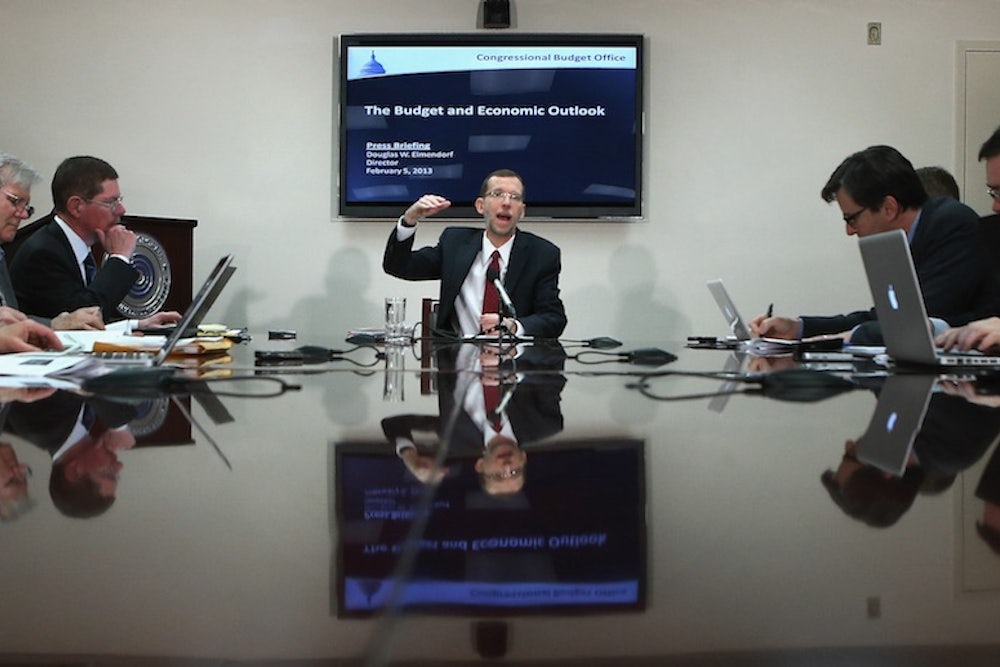Big top-line numbers from the Department of Health and Human Services today show that, five weeks in to the Affordable Care Act’s 2014 open-enrollment period, 6.4 million consumers—including 1.9 million first-timers—have signed up, or were automatically re-enrolled, for coverage on healthcare.gov. That doesn’t count the million-plus enrollees who have signed up so far on state-based exchanges that aren’t run by the federal government.
The current open enrollment period ends seven weeks from now, on February 15, which leaves Obamacare poised to nearly double its first-year enrollment total in year two.
At the current pace, enrollment will shatter HHS’s cautious estimate that only 9.1 million people will be covered by an exchange plan by the end of 2015, and could even exceed the Congressional Budget Office's relatively optimistic projection of 13 million signups.
Institutionally, HHS should have greater facility with ACA analyses than CBO, and perhaps the department was setting expectations low to guard against disappointing progress, or create the appearance of an unexpected Obamacare surge. But either way it’s undeniable that CBO had a better bead on this than HHS.
And yet, just this week, Dave Weigel of Bloomberg reported that Republicans in Congress will bend to pressure from the right and appoint a new CBO director, to make big changes at the agency, rather than reappoint its current director Doug Elmendorf.
Republicans discuss this in terms of “reform,” but the intention is to undermine CBO neutrality in order to generate friendly cost-estimates for tax cuts. To use so-called “dynamic scores,” which incorporate a supply-side assumption that income tax cuts benefiting wealthy people will generate enough economic growth to at least partially offset revenue losses you’d expect using more straightforward analyses.
It’s unclear how radically Republicans want to overhaul the agency. In theory they could appoint a competent economist to run CBO, and simply require that person to generate two analyses for each proposal—one using a static model, and one using a model that incorporates modest assumptions about the second-order effects of tax cuts. They could also turn it into a right wing hack outfit. Conservative activists would love it if CBO didn’t just make it easier for Republicans to sell tax cuts, but also generated doomsaying projections for Democratic initiatives like the Affordable Care Act.
If anything, though, CBO’s Obamacare projections have been too conservative as it is. The law has come in under cost despite enrolling more people than projected. But as an unbiased arbiter, CBO has done a better job than institution in Washington of modeling the effects of the ACA, and today’s enrollment numbers underscore that accomplishment neatly. They also underscore what a loss it would be if Republicans destroyed its professionalism for short-term partisan gain.
